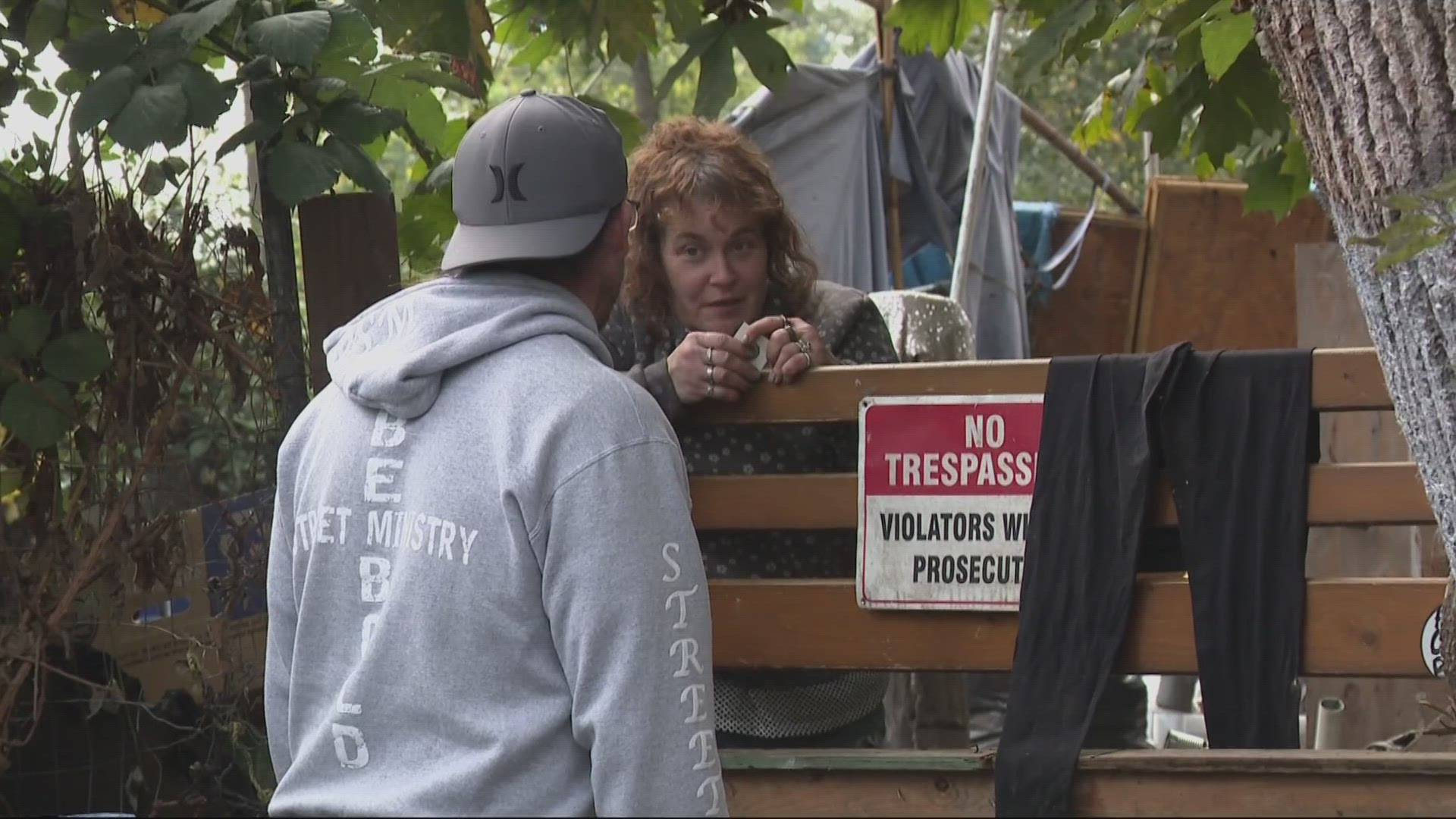SALEM, Ore. — Oregon’s homeless crisis continues to be felt statewide, and drug use is one of the most visible components of the problem, and some homeless Salem residents say Oregon's Measure 110, which decriminalized many hard drugs, has only been making their lives harder — or at the very least, they have yet to see any of the measure's promised benefits materialize.
"We've lost eight to nine friends in the past two and a half, three years, if that," said Malia Saunders, a homeless Salem resident.
Saunders lives in a Salem encampment that is one of the biggest such sites in the state. Hundreds of people live there, and some have been there for more than a decade. Saunders and her boyfriend have been homeless in Salem for years, and she said she's seen an uptick in crime and deaths since Measure 110 was passed.
“It gave the leeway to not focus on getting sober and like, focusing on ourselves,” Saunders said. “It's kind of just allowed it to continue.”
"Decriminalization of the drugs thing just made it easier for people to do, and not enough consequence for them to want to change, you know?" said Nicholas Hays, another homeless Salem resident.
Other formerly homeless Salem residents agreed. Matthew Maceira was homeless for years and addicted to drugs for more than a decade. He was first introduced to drugs by his father, he said, who introduced him to crank when he was 11 years old. After that, Maceira became involved in the drug world and became homeless as a teen.
"Me being on the streets was due to addiction," he said.
Today, he does outreach work to help friends who are still homeless. But he said Measure 110 has led to more people becoming homeless, and it has also made it harder to get people back into housing.
"It's only caused harm," he said.
Measure 110 was pitched as an approach that would lead to reduced crime, increased public safety and fewer deaths by getting people struggling with addiction into treatment instead of legal trouble. But the measure has quickly become a lightning rod for criticism, with many arguing that it hasn't worked as intended or has contributed to Oregon's homelessness and drug crises and issuing calls for the law to be altered or scrapped altogether.
But there have been some positive signs — a report from The Oregon Health Authority in February showed that 60,000 Oregonians struggling with addiction were helped by Measure 110.
A recent study also found Measure 110 didn’t increase or decrease overdose deaths, and Measure 110 proponents have pointed to the study as an indication that the legislation hasn’t caused the increase in drug use; it simply took effect at a time when the entire country is struggling with a surge in fentanyl distribution and overdoses.
Still, the homeless residents in Salem said they haven't noticed the benefits.
"I'm tired of having a lot of my friends, or people that consider themselves family, build the friendship and the relationships that we have, to the next day finding out they overdosed because of some stupid drugs," Saunders said.

